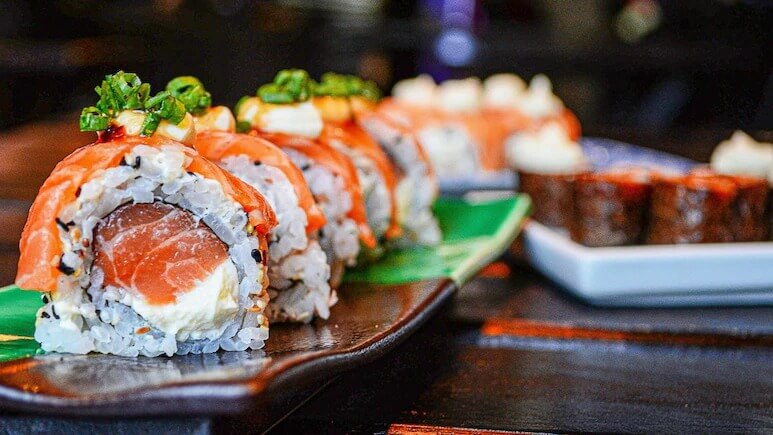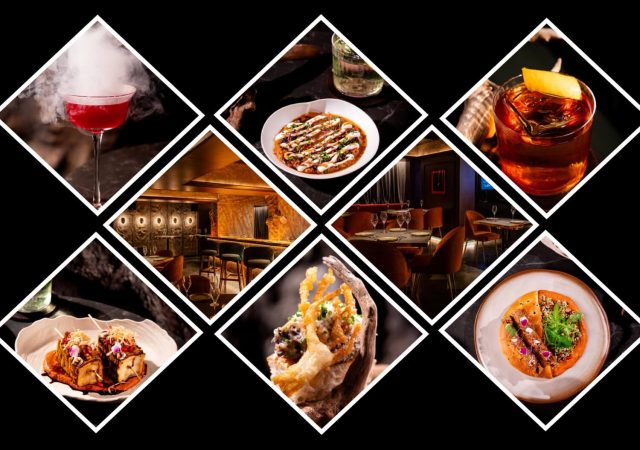Once seen as an exotic delicacy limited to five-star restaurants, sushi has now made its way into Indian hearts, homes, and even bustling street stalls. As India celebrates International Sushi Day, it is a good moment to look at how this iconic Japanese dish found its footing in the country — and how it has evolved to match the diverse Indian palate.
The Roots of Sushi and Its Journey to India
Originating during the Edo period in Japan, sushi began as a quick snack for the Chonins, a merchant class living under the Samurai. Traditionally, it is made using just two simple ingredients — vinegared rice and raw fish — but what makes sushi unique is the artistry, balance, and technique behind it.
Over time, sushi evolved to include a wide variety of ingredients — seafood, vegetables, and even meat — making it highly versatile. This adaptability is one of the key reasons it was embraced so warmly by India.
Why Sushi Works So Well in India
According to Chef Eric Sifu, Chief Culinary Officer of Pebble Street Hospitality, sushi appeals to modern Indian diners because of its clean flavours and elegance.
“Sushi reflects the values of a well-travelled, curious diner. It is honest, subtle, and deeply respectful of ingredients,” says Chef Eric.
India, being a rice-eating nation with a vast coastline and a strong fish-eating culture, already had the core ingredients and sensibilities to appreciate sushi. The boom in international travel and the entry of foreign investors in the 1990s brought Japanese expats and culinary influences into major Indian cities, paving the way for authentic Japanese restaurants to thrive.
The Role of Restaurants and Early Adopters
One of the early pioneers of Japanese cuisine in India was Sakura at The Metropolitan Hotel & Spa in New Delhi. As Chef Swapnadeep Mukherjee recalls:
“Back when Indians were not familiar with Japanese cuisine, Sakura introduced them to the real thing. Over time, regular patrons began to develop a true appreciation for authentic sushi.”
What started as a niche offering in luxury hotels has now grown into a mainstream urban trend.
Desi Sushi: When Tradition Meets Innovation
Sushi may have entered India in its purest form, but it did not take long for local chefs and food entrepreneurs to give it a desi twist. As with Chinese chow mein or Italian pizza, sushi too has been localised to suit the Indian flavour palette.
Today, you will find:
- Achari sushi with pickled flavours
- Paneer tikka sushi for the vegetarian crowd
- Jain sushi without onion or garlic
- Even Arabic fusion sushi using Middle Eastern ingredients
This creative spin has made sushi accessible not just to elite diners but also to the everyday Indian food lover.
From Plate to Pavement: Sushi Hits the Streets
Perhaps the most remarkable evolution of sushi in India is its transition from fine dining to street food. Places like Chatori Gali in Lucknow, known for spicy kebabs and chaat, now serve fusion sushi rolls at roadside stalls.
This kind of street-level presence shows that sushi is no longer a foreign trend. It is becoming part of the Indian culinary landscape, just like Indo-Chinese or Mughlai fusion dishes.
Sushi Is More Than Just Food
For chefs and diners alike, sushi is not just a dish — it is a philosophy. It represents precision, simplicity, and mindfulness. In a fast-paced world, sushi reminds us to slow down, enjoy the texture, and savour the balance of flavours.
As Chef Eric puts it,
“Sushi teaches restraint and respect. It speaks across cultures because it values authenticity over theatrics.”
Conclusion: A New Chapter in Indian Food Culture
The rise of sushi in India reflects more than a food trend. It highlights a growing openness to global cuisines, a willingness to experiment, and an appetite for both authenticity and innovation. Whether enjoyed at a luxury dining table or from a paper tray on the street, sushi has earned its place in India — and it is here to stay.
So, on this International Sushi Day, let us raise our chopsticks and celebrate how this humble Japanese dish became a pan-Indian culinary phenomenon.
For more food stories, chef interviews, and trending dishes across India, stay tuned to https://boldoutline.in/











